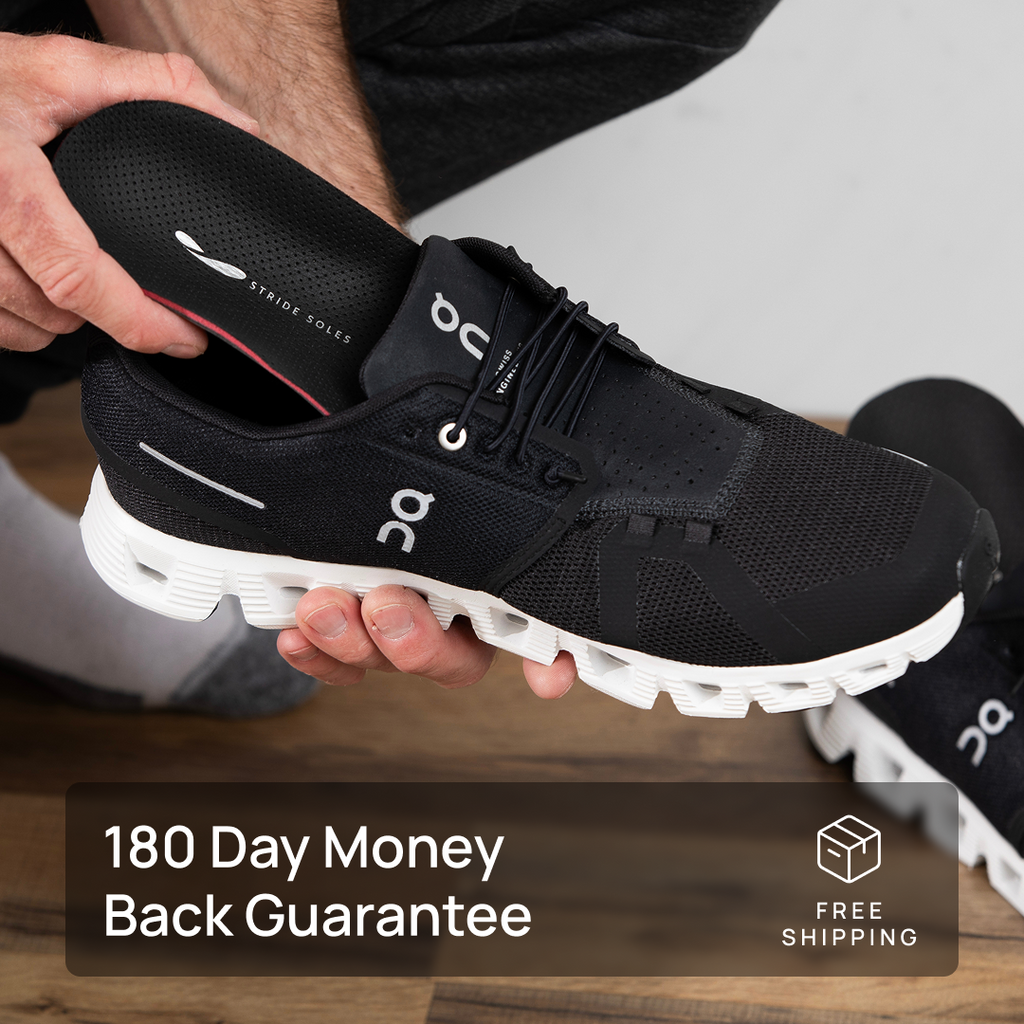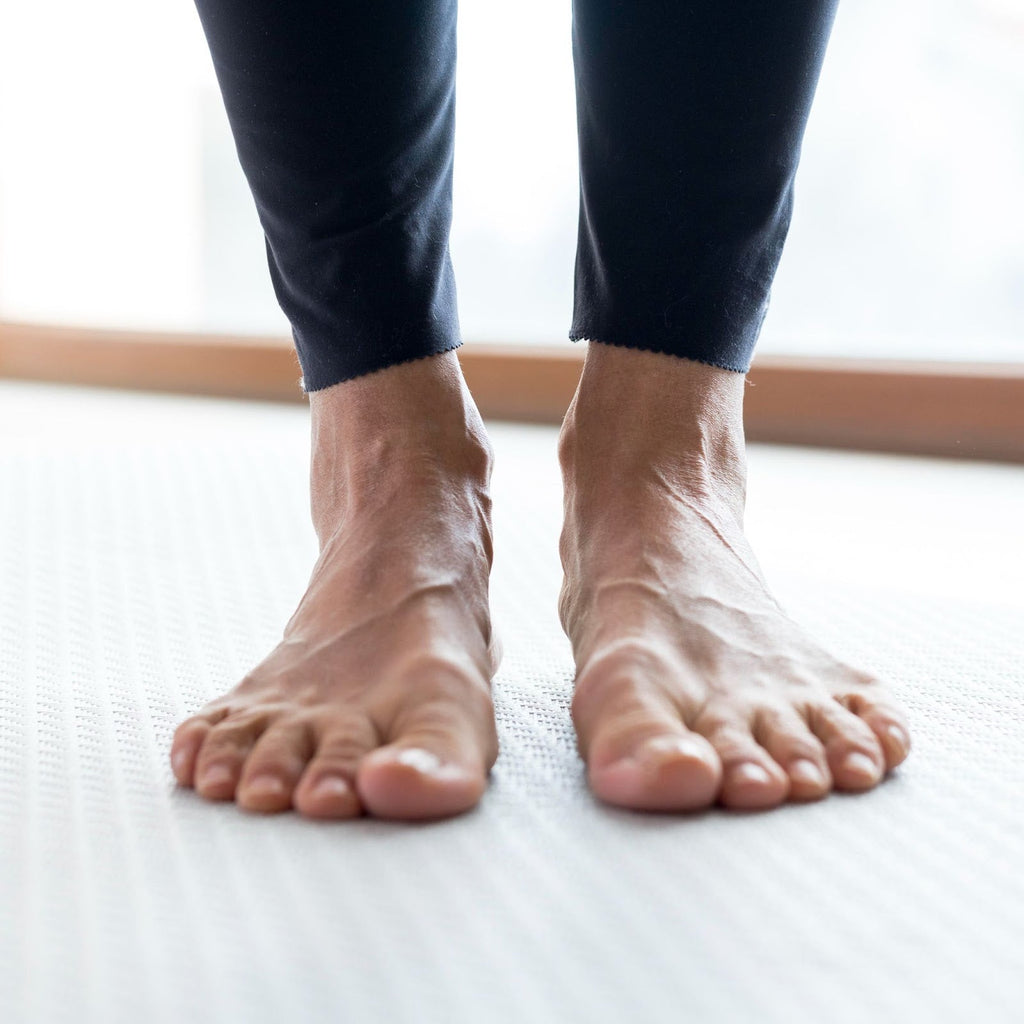Cost of Custom Orthotics
Custom orthotics will generally cost between $200 and $800. You can even get some types for as low as $59 or for as high as $1,000. These prices vary based on factors such as the manufacturer, material used, foot condition being treated, and whether the purchase is made from an online provider or from a physical clinic.
Key Takeaways
- Custom orthotics cost between $200 and $800, excluding consultations and follow-ups.
- The cost is dependent on several important factors, like foot condition, the quality of materials used, and where the purchase is made.
- The type of orthotics can significantly lower or increase the cost, especially when combined with foot conditions, design, and materials used.
- Insurance may partially cover the cost if it is medically necessary and prescribed.
- Consultation, gait analysis, fitting, and follow-ups may add to the overall cost
- Alternatives are relatively cheaper, especially if there are no severe conditions to consider.
What Are Custom Orthotics?
 Custom orthotics are foot devices that are specifically made to fit a patient’s feet in order to provide comfort and support. They are designed by order and according to the specific fit of the patient and no one else. This is different from over-the-counter options that are generic and made to fit just about anyone.
Custom orthotics are foot devices that are specifically made to fit a patient’s feet in order to provide comfort and support. They are designed by order and according to the specific fit of the patient and no one else. This is different from over-the-counter options that are generic and made to fit just about anyone.
The major features of custom orthotics include:
- Specific Fit - These devices are not like those found over the counter but are made to fit a specific person according to their order and unique feet structure. That means they fit the unique curves of the feet and may not work for another individual.
- Durable Materials - Most custom orthotics are made from materials like ethylene vinyl acetate (EVA), carbon fiber, and polypropylene (PP) that provide the best support and shock absorption that anyone can find with orthotics. This is important for foot conditions that cause general or localized pain.
- Pressure Redistribution - Custom orthotics are excellent at redistributing foot pressure to ease pain and provide comfort, regardless of the shoes or terrain. This means no part of the feet will develop calluses due to undue pressure or localized pain.
- Universal Shoe Design Friendliness - These orthotics can typically be designed to fit any shoe type and provide ease for any terrain. This includes boots, trainers, dress shoes, and sneakers, reducing the need to get several custom options for different shoe designs.
What Actually Drives the Cost of Custom Orthotics?
Several factors drive the cost of custom orthotics. These include the type of orthotics and the material used to make them. The following are key factors driving the cost:
Source
Where you get your orthotics from is the first thing that will determine how much it will cost you. There are two broad options, and they are online or physical clinics.
Online Providers
Gone are the days when you could only get custom orthotics by visiting a clinic. Today, there are companies that offer custom orthotics through a completely online process. Some examples, like Stride Soles, have perfected their process such that they can fully assess your foot, carry out gait analysis, and 3D imaging of the foot online.
We compared prices across 5 such online providers, and we found that the lowest price for authentic custom orthotics (not semi-custom) was $199 for a pair. Some, like Stride Soles, even offer discounts for additional pairs. So, the more you purchase, the more you save.
On the other end, the most expensive we found from these online providers was $458. As at the time of this writing, it was available at a promotional price of $249 a pair.
All the prices listed for online providers include assessment, molds, and production. Some, however, charge extra for refitting and refurbishing. This, therefore, means that the average cost of getting custom orthotics from online providers is about $200.
Physical Clinics
These are the traditional providers of custom orthotics. We surveyed five clinics across the United States, and we found the lowest price for their custom orthotics to be $375. This is from Joel Foster DPM using biofoam mold.
The highest price of the five clinics we compared was from Annapolis Foot & Ankle Center in Maryland. Their custom orthotics go for the base price of $450 a pair. This does not cover the cost of additional services like X-rays. It also does not cover the cost of the initial consultation and assessment, which is $169. So, the minimum for getting custom orthotics from this center is $619, excluding the cost for any other services, like X-rays.
From our comparison, the average cost of getting fully customized orthotics from a clinic, including full assessment, gait analysis, scans, and molds, is about $500. While prices vary between $200 and $800, our custom orthotics deliver premium quality at an accessible price point with a 180-day satisfaction guarantee.
Type of Orthotics
There are two broad types of orthotics - functional and accommodative. Each type can significantly affect the price. Functional orthotics are made from rigid or semi-rigid materials, like graphite and plastic. This means they are stiffer and offer better biomechanical corrections, making them more expensive, with some costing as high as $400 to $600 a pair.
On the other hand, accommodative orthotics are less stiff and offer less biomechanical corrections. They are softer than functional orthotics, which means they are more forgiving on pressure points. This also means the cost is lower, coming in at about $185 to $225. Note also that durability and replacement frequency can significantly affect the cost.
Aside from functional and accommodative orthotics, you can also have special orthotics designed specifically for athletes, children, or persons with specific needs. These types of orthotics may attract additional cost.
Consultation and Fitting
Office or clinic visits can also impact costs, and while some offer package deals, others provide services in levels. For example, an all-inclusive package in a given clinic may cost $399, including the consultation, examination, 3D scanning, molding, or casting, production, fitting, and adjustments for up to a 3-month period.
For other clinics, it might cost more to get the same package deal, sometimes as high as $500. Premium assessments may cost more, in some cases up to $550. The cost includes a biomechanical evaluation and custom-made orthotics.
Companies like Stride Soles that leverage technological advancements now offer online services that cut off the need for physical consultation, examinations, and scans without reducing the effectiveness and quality of the process. This results in custom orthotics that offer comparative, or even better quality functions, while costing less.
Choice of Material
The material to be used will affect the final cost of the custom orthotics. Polypropylene (PP) is the most common material because it is moldable, durable, and affordable. The price range is between $300 and $600.
Graphite or carbon-fiber composite is another popular option because it is thin and stiff enough for improved biomechanical function, but the cost is higher than PP, coming in at $500 to $800. The reason for the higher price is that carbon or graphite is better-performing than PP, meaning that custom orthotics made from this material last longer and fit better for form and function.
Ethylene vinyl acetate (EVA) is soft and made for comfort, translating to lower costs, sometimes $400 to $550. 3D printed custom orthotics can cost between $290 and $440. Note that some custom orthotics will combine different materials for more effectiveness.
Foot Condition
Foot conditions like plantar fasciitis and mid-level flat feet will require functional custom orthotics, which cost between $300 and $800 a pair. Mild flat feet with minimal symptoms will, however, cost slightly lower. These may go for between $200 and $500.
For children, pediatric orthotics cost anywhere between $400 and $450. People with diabetes and rheumatoid arthritis will need accommodative custom orthotics that cost between $300 and $800. This same price range applies to those who need custom orthotics for heel spurs and Morton’s neuroma, although they typically need functional orthotics instead of accommodative.
Those with severe foot deformities will need devices ranging between $500 and $2,000. These costs do not include consultation with the doctor and other services at the clinic as required.
Insurance
Some custom orthotics are covered partially by insurance, which can significantly affect the overall cost, especially for those who plan to pay out of pocket. Medicare, for example, covers costs for orthotics for diabetic patients if they meet certain criteria and their insurance carriers are enrolled in the program.
However, the coverage is only partial, so if a patient has spent out of pocket, they may get reimbursed. Otherwise, they can apply to have insurance cover some of the costs. For example, if a patient has severe diabetic-related foot issues, Medicare may cover a pair of custom-molded shoes and orthotics, plus two extra pairs of orthotics for one calendar year. Additional pairs within the same calendar year will be paid for out of pocket.
Apart from Medicare, individuals can take out policies that cover part of the cost of custom orthotics. But many insurance carriers do not offer coverage for these devices unless they are medically necessary and prescribed, and some go as far as using the Medicare template for coverage.
Other Factors that Can Affect Cost
Aside from the factors we've discussed above, some other factors that can affect the cost of custom orthotics include:
- Specialist Involved - You are likely to spend more with a podiatrist and an orthotist than you will with a physiotherapist. Podiatrists are specialist foot doctors while orthotists specialize in supportive devices.
- Location - The location of the provider can also affect the cost. Providers located in large cities are likely to charge more than those located in smaller town clinics.
- Follow-up Care - If you require multiple follow-up visits for adjustments, modifications, or refitting, this may add to your overall cost.
Alternatives to Consider
Not everyone will be comfortable with the cost of custom orthotics. Therefore, consider the following alternatives:
-
Regular Insoles—If the price is an issue, over-the-counter regular insoles also work to provide support, stability, and comfort. These can cost anywhere between $20 and $70, depending on the vendor. Some may sell for a little higher.
-
Semi-custom Options—These may cost between $60 and $300, which is relatively lower than new ones. They can be grabbed off the shelf, partly finished, and molded to fit the feet, forming a bridge between performance and cost.
-
Modified Footwear—These types of footwear can provide roomy toe boxes, a cushioning effect, and the right arch support for various foot conditions. Depending on the changes, footwear modifications can cost between $10 and $260. A custom fit will be more expensive at $900.
-
Therapy—Therapy and exercise strengthen the muscles and improve foot function, so consider massages and mobilization where necessary. It may cost $75 to $150 per session out of pocket and $20 to $60 per session with insurance. Sometimes, it can cost a little more.
It is important to understand that these alternative options may not offer the same level of precise support and overall effectiveness that custom orthotics will provide. You should therefore consider what is more important to you—cost or value.
Conclusion
When considering the cost of custom orthotics, it is important to understand the value they offer. Do not only base your decision on how much it will cost; you should also consider how effective it can be for the foot condition you are treating.
You can use the information we’ve shared to find ways of cutting cost without compromising on the quality you get.



